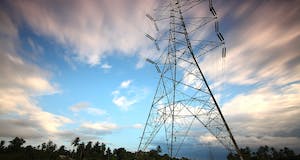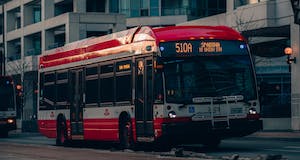Living Expenses
Many students choose to live off campus. Here are the estimated costs of life in the Greater Toronto Area in 2024. A more detailed itemization of costs can be found via the link at the bottom of the page.
NOTE: For detailed, up-to-date course and program fees, please visit the Course and Program Fees webpage. In addition, please review the following FAQs to learn how course and program fees are calculated via Graduate Fees webpage.

Housing/Rent
$1,500 – $2,500/month
Costs of accommodations vary depending on the type of unit and location. Toronto has many different types of housing from apartment units to detached houses to single rooms. Pay attention to the details such as nearby amenities and commute times. You may wish to coordinate with other students: while finding shared accommodations can be a good way to build a community and find a budget-friendly option. We also encourage you to consider transit options and travel time to York.

Hydro/Electricity
$50 – $65/month
Hydro refers to the cost of electricity and is often not included in rent. Be aware that large appliances like a dishwasher or dryer can drive up the cost. It is also wise to budget for different seasons, as air conditioning or electric heating can add to the monthly hydro bill. Run the dishwasher or the washing machine during off-peak hours (evenings, weekends and holidays) when rates are lower to create a budget-friendly routine.

Internet
$70 – $125/month
Many students find regular access to internet is essential for coursework and research, as well as connecting with friends and family. Internet packages vary widely; keep an eye out for sales, and ask internet providers if they have discounts for students and new clients.

Phone
$45 – $120/month
Mobile phone plans and services tend to cost more in Canada compared to other countries. Providers have different options including different data packages and location coverages. Explore your options before committing to one plan. Multi-year and monthly plans are available as well as different data. To learn more, please review the Sim Cards and Cell Phone page.

Food & Grocery
$350 – $450/month
Toronto is one of the most diverse cities in the world, with a wide array of cuisines. The cost of food has also risen with inflation over the last few years. Look for budget grocery stores, seasonal foods, and plan to eat at home or bring meals, where possible, to maximize your budget.

Childcare
$850 – $2200/month
If you have dependents, make sure to budget childcare costs into your monthly budget. Toronto has many different childcare options. Many places offer full-time and flexible part-time care. Make sure to budget for emergency care if you need to attend to unexpected responsibilities outside of the house. To learn more, please review the Child Care Fee Subsidy page.

Transportation
$0 – $135/month
Toronto has a convenient TTC system, which includes buses, subways and streetcars. If you are commuting from outside of Toronto, you may use public transportation services like the GO Transit train service or the MiWay bus system. All three transit systems use Presto cards. For more information please refer to our Transportation Services page.

Clothing & Shoes
$30 – $120/month
While you may not have expenses in this category every month, you will have occasional clothing and shoe needs that you may wish to budget for. Toronto experiences four distinct seasons that require different clothing options: keep an eye out for seasonal sales for budget-friendly options.

Books & Supplies
$500/semester
Beyond tuition fees, factor in costs for textbooks and other supplies. Each course requires individual reading material that is not always available online. Make sure to budget for tech tools as well. Second-hand textbooks or digital formats are often less expensive.

Entertainment & Recreation
$150 – $300/month
Toronto has many museums, events and festivals that are active throughout the year. Take advantage of living in Toronto by going to see these events. Consider outside activities like hiking and cycling for budget-friendly options, and look for free passes to attractions at local public libraries.

Household and Pharmacy Expenses
$100 – $200/month
It is necessary to consider out-of-pocket spending on household essentials and pharmaceutical products. Make sure to consider your budget for this monthly.

Emergency Funds
$100 – $1000
Student budgets are often tight, but it is still a good idea to have a buffer for unexpected costs, like broken technology or unplanned travel, whenever possible.
NOTE: For additional information on the cost of living in Toronto, visit the Numbeo website. Numbeo is the world’s largest cost of living database. It is also a crowd-sourced global database of quality of life data: housing indicators, perceived crime rates, healthcare quality, transport quality, and other statistics.

Campus Resources
Overview of the network of support services available to graduate students.
Student Services
Resources and services to assist students throughout their graduate careers.

